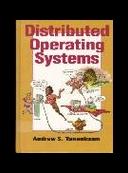Книга: Distributed operating systems
9.7.2. Objects
9.7.2. Objects
Objects are the central concept in Amoeba. A few are built in, like threads and processes, but most are user defined (e.g., files) and can have arbitrary operations on them. About a dozen generic operations (e.g., get status) are defined on nearly all objects, with various object-specific operations defined on each one as well.
In contrast, the only objects supported directly by Mach are threads, processes, ports, and memory objects, each with a fixed set of operations. Higher level software can use these concepts to build other objects, but they are qualitatively different than the built-in objects like memory objects.
In all three systems, objects are named, addressed, and protected by capabilities. In Amoeba, capabilities are managed in user space and protected by oneway functions. Capabilities for system-defined objects (e.g., processes) and for user-defined objects (e.g., directories) are treated in a uniform way and appear in user-level directories for naming and addressing all objects. Amoeba capabilities are in principle worldwide, that is, a directory can hold capabilities for files and other objects that are located anywhere. Objects are located by broadcasting, with the results cached for future use.
Mach also has capabilities, but only for ports. These are managed by the kernel in capability lists, one per process. Unlike Amoeba, there are no capabilities for processes or other system or user-defined objects, and they are not generally used directly by application programs. Port capabilities are passed between processes in a controlled way, so Mach can find them by looking them up in kernel tables.
Chorus supports about the same built-in objects as Mach, but also uses Amoeba's capability system for allowing subsystems to define new protected objects. Unlike Amoeba, Chorus capabilities do not have an explicit (crypto-graphically protected) field giving the allowed rights. Like Amoeba's capabilities and unlike Mach's, Chorus' capabilities can be passed from one process to another simply by including them in a message or writing them to a shared file.
- Creating and Deleting Device Objects
- 5.1.2. Architecture Objects
- 6.6.1. Objects
- 7.2. OBJECTS AND CAPABILITIES IN AMOEBA
- Objects and object managers
- Auditing Active Directory objects
- Chapter 8: Other Kernel Objects
- 4.5 Objects
- Chapter 4 Classes and Objects
- Compressions for Stream Objects
- Using Exception Objects
- LINQ to Objects




